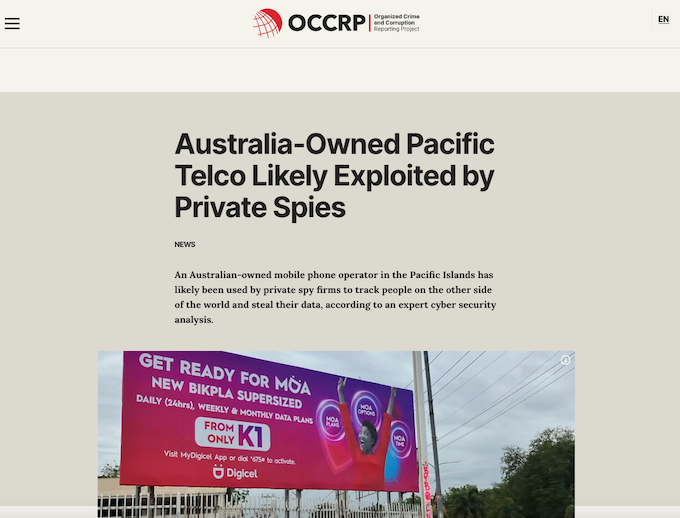
A investigative journalism programme — Organised Crime and Corruption Reporting Project (OCCRP) — that has pubiished exposes about the South Pacific and has not been impacted on by the “freeze” of USAID funding has hit back in an editorial calling for support of independent media.
EDITORIAL: By the OCCRP editors
“OCCRP is a deep state operation.
“OCCRP is connected to the CIA.
“OCCRP was tasked by USAID to overthrow President Donald Trump.”
How did we end up getting this kind of attention? Old fashioned investigative journalism.
We wrote a simple story in 2019 about how Rudy Giuliani went to Ukraine for some opposition research and ended up working with people connected to organised crime who misled him.
Unbeknown to us, a whistleblower found the story online and added it to a complaint that was the basis of President Trump’s first impeachment. We also wrote a story about Hunter Biden‘s business partners and their ties to organised crime but that hasn’t received the same attention.
- READ MORE: Trump’s foreign aid freeze throws independent journalism into chaos
- Other Pacific media freedom reports
Journalism has become a blood sport. It’s harder and harder to tell the truth without someone’s interests getting stepped on.
OCCRP prides itself on being independent and nonpartisan. No donor has any say in our reporting, but we often find ourselves under attack for our funding.
It’s not just political interests but organised crime, businesses, enablers, and other journalists who regularly attack us. What’s common in all of these attacks is that the truth doesn’t matter and it will not protect you.
Few attack the facts in our reporting. Instead we’re left perplexed by how to respond to wild conspiracy theories, outright disinformation, and hyperbolic hatred.
At the same time, we’ve lost 29 percent of our funding because of the US foreign aid freeze. This includes 82 percent of the money we give to newsrooms in our network, many of which operate in places [Pacific Media Watch: Such as in the Pacific] where no one else will support them.
This money did not only fund groundbreaking, prize-winning collaborative journalism but it also trained young investigative reporters to expose wrongdoing. It’s money that kept journalists safe from physical and digital attacks and supported those in exile who continued to report on crooks and dictators back in their home countries.
OCCRP now has 43 less journalists and staff to do our work.
No attack or funding freeze will stop us from trying to fulfill our mission. Just in the past week, OCCRP and its partners revealed how Russia’s shadow fleet sources its ships, how taxes haven’t been paid on Roman Abramovich’s yachts, and how Syrian intelligence spied on journalists.
Next week, we’ll take on another set of powerful actors to defend the public interest. And another set the week after that.
We are determined to stay in the fight and keep reporting on organised crime and the corrupt who enable and benefit from it. But it’s getting harder and we need help.









































